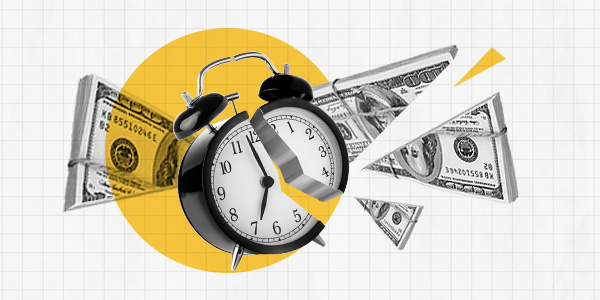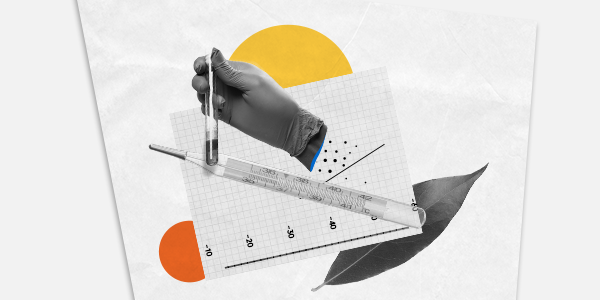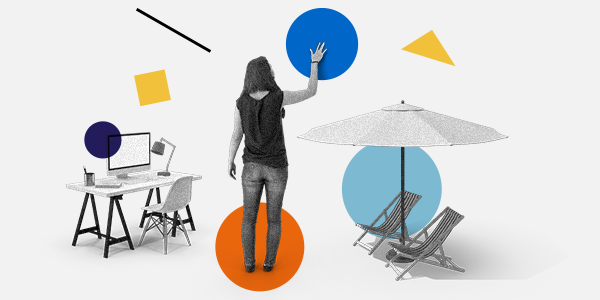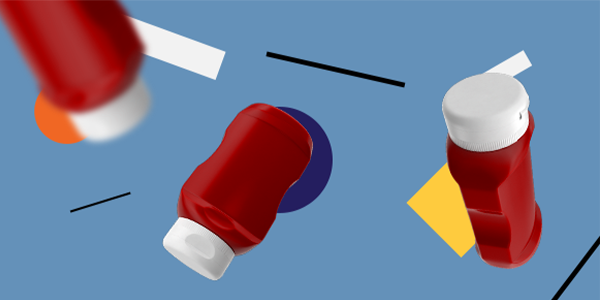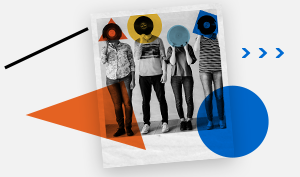
Nina Mažar is a Co-Founder of BEworks, Professor of Marketing at the Questrom School of Business at Boston University, and Co-Director of the Susilo Institute for Ethics in the Global Economy. Her expertise lies in how expectations, emotions, peers, and random cues in the environment affect how we think about products, money, investments, and morality, and their implications for welfare, development, and policy.
One of the world’s leading behavioral scientists, Nina was named one of “The 40 Most Outstanding B-School Profs Under 40 In The World” and has published in leading academic journals. Nina’s work has been impactful in the public sphere, speaking around the world, and research featured in popular outlets like the New York Times. In addition to her central role at BEworks, Nina has brought behavioral science to bear on applied challenges as the Senior Behavioral Scientist of the World Bank’s behavioral insights team (eMBeD), and served as advisory for other government boards and non-profits.
In this conversation, Kelly and Nina discuss the role of behavioral science in the face of a pandemic, covering productivity, well-being, ethics, and much more.

Kelly: Could you tell us what aspects of your research can be used to help governments solve COVID-19 related challenges?
Nina: I think we, as behavioral researchers, really have a lot of opportunities to help things through. For example, on my side, I have been thinking with some colleagues of mine at Boston University about how to get a better sense of what the effect of the pandemic has been on people's productivity. I'm not an organizational behavior person by training, as you know; I have a behavior and organizational behavior colleague who is working on this with me. We are just about to launch a survey to get a sense of the productivity before versus during [the pandemic].
We are asking about productivity from various different angles, so not just the hours that I'm putting in, but do I actually feel that I'm accomplishing the amount of work that I'm given? Has the amount of work that I've been given increased, decreased, or has it stayed the same? What has been the expectation on my employer’s side and, as a consequence, probably my anxiety level? Then also questions such as ‘Are you working mostly from home these days? Has that changed? Do you have a dedicated space where you can work? Do you have people around you? Do you have children? Do you no longer have childcare?’ We would like to get a bit more fine-grained information also based on what type of job people have, in which industry, as well as if they are part time, full time, or self-employed.
This is not so much about interventions, as you can tell. It's really, first off, to get a sense of how people have been impacted and how they feel about it. It's not just this objective sense of ‘what has happened to my productivity’ but also how is my well-being doing? I think one of the big things that we hear pop up more and more, especially in the medical profession, is that this pandemic may really increase or decrease people's well-being as we are much more isolated. A lot of people who live by themselves are single, so they may, in theory, be in productivity heaven because they are at home, they can just focus on work; but at the same time, we forget that we are social animals. It's important that we have our social ties and if we are now separated from all of these, what does this do to our well-being, and what does this do to being able to keep on doing the work at the quality that that we expect?
I think what we would like to see is how everybody across the board has been affected, and potentially in different ways. Still, I do think that we will find that almost everybody has been affected; I think it's important to get a sense of that because then we are in a much better position to judge the effects of the pandemic, not just the immediate ones, but also the longer term ones.
We also have a few explorative open questions in that survey. We are hoping to get a sense of what has helped people to do their jobs well, and what has helped people to basically stay sane or feel good, to get some insights that we can then maybe use to think about potential interventions or recommendations. It's not a typical field experiment RCT that we are running, but I think if you combine insights from organizational behavior with marketing, judgment, decision-making, behavioral economics, psychology, I think this is when you really get a very rich view of everything, and that's what we're doing.
For example, I'm exploring right now, with some computational social scientists, to what extent are our social connections, or the social ties that we have, in social media? To what extent are they important and helping us to behave in the same or different way across, potentially, county borders or state borders that have very different policies when it comes to how they're tackling the pandemic? (There we are looking into tracing mobility data and linking that potentially to some social media action.) Also, what is the current status of each of the counties or states? Are they still open? Are they still transitioning? How extreme have the measures been in their recommendations in terms of stay at home, wear masks? How extreme has a closing been of daycare and other non-essential businesses?
I think if we, as behavioral scientists, work with other disciplines, we can actually really accomplish quite a bit and this is obviously on top of the thinking about ‘What insights have we already accumulated in behavioral sciences that could be immediately helpful in thinking about some useful recommendations that we can give to policy, whether it’s hand washing or creating new habits?’
I think this is also the time where we can really be creative based on the existing knowledge. For example, if we know that social ties are so important for us humans, I think one of the places where behavioral economists or behavioral scientists could be really making a difference is to think about ‘How can we recreate those when everybody is on zoom and everybody is social distancing?’, or ‘How do you recreate the typical watercooler chit chat?’

Kelly: Freedom is a fascinating and powerful and beautiful concept. In some ways, it gets at the heart of some of the challenges between behavioral economics and libertarians, or other advocates of small government. Some of this [resistance to interventions around public health] seems to potentially be people genuinely thinking that the price that's being paid for the risk being mitigated is too high in terms of the imposition of freedom. It makes this tension between government intervention to protect individuals and to protect society versus freedom.
What are your thoughts on freedom and behavioral economics and this being one of the things that's driving people to fight and resist public health interventions?
Nina: You’re asking very tough questions here, almost bordering on philosophical, and obviously political. This is one of the reasons why I’m not a politician. You have to make tough trade-offs. When it comes to behavioral interventions, for example, I can see that some people feel it's unethical sometimes because they feel that some of those interventions are made to trick people, to try to push them to doing something that they otherwise wouldn't do. That is actually an easier point to address because we can say we are not pushing people to behave in ways that they are not interested in; it's about changing people's behavior who would like to behave in a certain way, but then life gets in the way and they don't behave according to that. I want to go to the gym, but then I procrastinate, and I don't end up doing it. I would like to save for retirement, but everything is far too complex, and then I am just paralyzed. This is oftentimes where we make a difference. It's not forcing people to do something that they don't want to do.
I think that there are probably more important issues that we need to think about when it comes to how we are applying behavioral economics in the real world and also when it comes to how to fight, for example, the current pandemic trade-offs. If you want to fight the pandemic, we need more tests. It would help if we can trace the infections, if we can trace people's mobility. Yet the trade-off here, and rightly so because it is about health data, is this is extremely sensitive. Privacy is a big issue. How do you trade off these? How should we think of that? How can we design systems so that privacy is not compromised in the right way? How can we design standards? If we as behavioral economists can help in this discussion and help with a better design, I think this is where we should be helping because these are really serious trade-offs.

Kelly: What role should companies be taking in terms of data collection now about their employees’ productivity, and about their employees’ social connection with other employees? How important is data collection at an individual company level as the world continues to evolve? Maybe we end up in hybrid models [of Work From Home and in office], or maybe we end up going back to work as normal. What role should companies be taking in participating and learning from this natural experiment? What steps should they be taking to be strategic about learning from this?
Nina: In an ideal world, I think companies should measure the productivity of their employees all the time and look at trends. Going back to this idea of a natural experiment, you would probably also see a big difference before the pandemic versus during, but in order to really understand where these differences come from, now you need more data. You have to, as a company, think very carefully [about] what is important for the productivity of your employees. You know your industry and how your company works. You know that the best, so you should have a sense, or survey your employees to get a sense, of what makes them productive. From the basic research perspective, it's also about ‘How happy am I at my job? How much responsibility do I have? How much control do I have?’ Those are the basic things, but I'm also thinking it may be other things that are specific to certain industries. If you know those, you would want to measure those too to then find out the correlation between those different variables at any point in time.
For example, with productivity, I think people's anxiety level plays an important role. We may find that productivity goes down, but this may not mean that productivity is bad when people are working from home. It's just that under these special circumstances, when your anxiety level is super up, where you're maybe worried about your finances, where you're worried about your health, where you have to take care of a child, where you have all these additional issues, productivity goes down. Again, it does not mean that working from home is not the right direction for the future.
In order to really be able to come to meaningful conclusions, you have to really think carefully about all the data that you need because if you only have a limited set of data, you could easily come to the completely wrong conclusions. Another thing that I wanted to mention, especially now when we're thinking of during the pandemic versus going back to work, you could think of this natural experiment here. There will be differences in what we are observing when it comes to work, and productivity, and happiness of workers, based on whether everybody is working from home or not everybody is working from home. Right now, everybody is working from home, so the expectations from employers or the companies are probably the same, more or less, across the board. You also don't have to worry too much about differences between employees, but once a company says those who want can choose to come back, or they can still work from home, now I may, as an employee, feel pressured. I have to go back because if I'm staying at home, I'm missing out on those social connections. My work may be viewed as not that effective because they may think that I'm maybe on Facebook or other things.
I guess what I'm trying to say is there is a lot of complexity that you would want to capture as we transition back if you want to learn something from this natural experiment. I think this hybrid mode that we will see in this phase, where we are going back, is actually much more complex than what we have right now during the pandemic.





